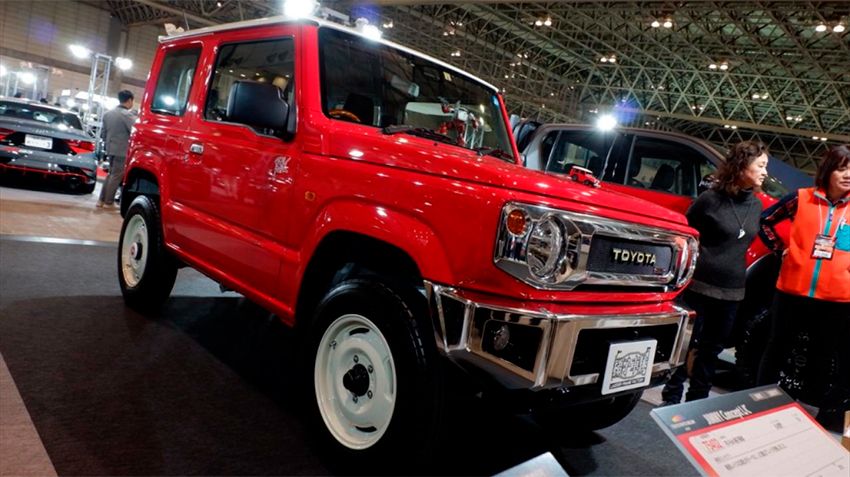The Japanese automobile industry can only stay with their own Big three

20 September 2019
Share exchange between Toyota and Suzuki could have far-reaching implications for Japanese carmakers
Some industry analysts from Japan say that Toyota and Suzuki made a step towards the formal merger, in the same way, as do transnational corporations acquiring the packets of each other's offers. The two companies announced a partnership on technology exchange in 2016, but the official announcement was made at the end of August, when Toyota paid 96 billion yen ($908 million) of 4.94% stake in Suzuki.

At the tuning show in Tokyo in January of this year gave a show-stop version of the new Suzuki Jimny with the exterior style of the classic jeep Toyota FJ40. As they say – in every joke has some truth
In return, Suzuki will buy shares of Toyota Motore in the amount of 48 billion yen ($455 million), which will ultimately make up only 0.2% of the total shareholding of Toyota. Supposedly, the deal will allow the two manufacturers to cooperate in the field of advanced technologies in the rapidly changing automotive landscape. The convergence of technologies of electromobility, Autonomous driving and car-sharing created what Toyota President Akio Toyoda called: "the Transformation of the industry, occurring once in a century".Those who follow the situation say that, earlier, Toyota has already acquired a 16.5 percent stake in Subaru, 5 percent stake in Mazda, a 5.9 percent stake in Isuzu, and a controlling stake in Hino and Daihatsu is completely absorbed.
Today Toyota has the sense to absorb their smaller competitors if she doesn't want to keep up with global progress. In the rest of the global car industry also formed alliances that would have been unthinkable even just a few years ago. So, Ford and VW are working together on the development of electric vehicles, and BMW and Mercedes-Benz for Autonomous vehicles.
When Toyota announced its partnership with Suzuki in 2016, there was speculation that this could lead to the creation of a "Big Japanese three", composed of corporations Toyota-Daihatsu-Hino-Subaru-Isuzu-Mazda-Suzuki, on the one hand, Nissan, Mitsubishi and Honda – with a third, which in this case would be on the market as a kind of David against two Goliaths. Now it seems that this then almost fantastic forecast a step closer to reality. In any case, it is this process of mergers will be most interesting in the automotive industry of Japan in the next few years.
|
|
|
Element was not found.








